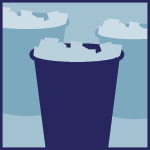 For more information on the topic of municipal solid waste, check out the University of Michigan’s Center for Sustainable Systems' Municipal Solid Waste Factsheet.
For more information on the topic of municipal solid waste, check out the University of Michigan’s Center for Sustainable Systems' Municipal Solid Waste Factsheet.
The curated collection below contains 9 videos, 4 podcasts and 5 games/activities. To access the resource, click on the image below the resource title.
Videos:
Sesame Street: Murray Visits a Recycling Center | Murray Had a Little Lamb
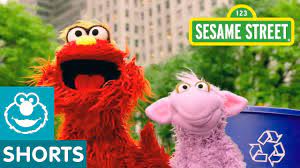 Grade Level: Pre-K-1
Grade Level: Pre-K-1
Duration: 6 minutes 3 seconds
Description: In this video from Sesame Street, Murray and Ovejita visit a recycling center to find out what happens to a milk jug after it is put in a recycling bin. Students will learn how recycled items are sorted and then made into new things.
Sesame Street: Use it Again, Recycling Song
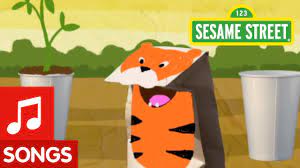 Grade Level: Pre-K-1
Grade Level: Pre-K-1
Duration: 1 minute 29 seconds
Description: Listening to this song from Sesame Street, young students will learn how to reuse items that would otherwise be thrown away.
Kids Go Green: Waste Less
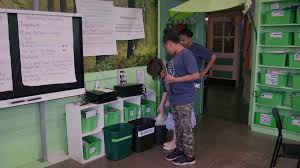 Grade Level: K-5
Grade Level: K-5
Duration: 3 minutes 46 seconds
Description: This short video from Cyberchase, provided by PBS LearningMedia, features a group of students who call themselves the "Green Team." These students discuss how they devised a plan to reduce waste in their school. Students will learn how composting, recycling, and sorting trash can positively affect the environment.
Kids Go Green: Reducing Food Waste
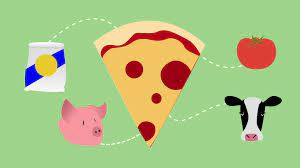 Grade Level: K –5
Grade Level: K –5
Duration: 1 minute 54 seconds
Description: This video animation from WNET, provided by PBS LearningMedia, discusses the environmental consequences of food waste. Additionally, students will learn ways they can decrease the food waste that they produce.
How FIVE BILLION Pounds of Las Vegas Garbage Powers a City | Overview
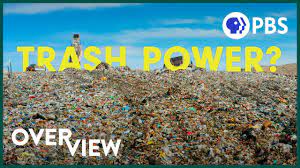 Grade Level: 6-12
Grade Level: 6-12
Duration: 9 minutes 14 seconds
Description: In this video from PBS Tierra, students will learn how a landfill in Las Vegas processes the city's waste in more sustainable ways, such as reusing food waste for hog feed, compacting trash, separating recyclable materials, and using trash to produce electricity.
What really happens to the plastic you throw away - Emma Bryce
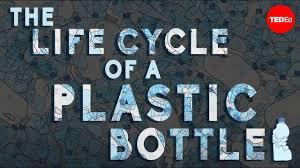 Grade Level: 4-8
Grade Level: 4-8
Duration: 4 minutes 6 seconds
Description: This video from TED-Ed explores the fates of three plastic bottles: one thrown away, one that ends up in an ocean garbage patch, and one that is recycled. Students will learn the environmental impact of each of these plastic bottles and the importance of recycling.
Garbage
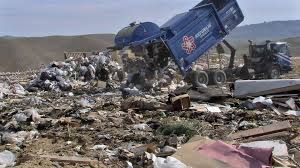 Grade Level: 6-12
Grade Level: 6-12
Duration: 28 minutes 48 seconds
Description: This video from Science Trek discusses the trash. Students will learn about waste to energy plants, what happens to trash in a landfill, and what Americans can do at home to help with the garbage problem in the United States. The video also features Megan Durrell a trash and recycling coordinator for the City of Boise, and Ted Hutchinson, Deputy Solid Waste Director for Ada County Solid Waste Management, as they answer student questions about garbage.
Waste Deep
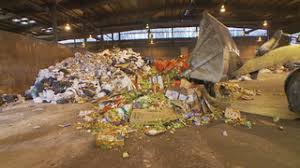 Grade Level: 6-12
Grade Level: 6-12
Duration: 5 minutes 26 seconds
Description: This video from America Revealed, provided by PBS LearningMedia, discusses food waste in America. Students will learn alternatives to throwing out food waste in a regular garbage can and why food waste is a problem in the U.S.
Is Recycling Worth It Anymore? The Truth Is Complicated.
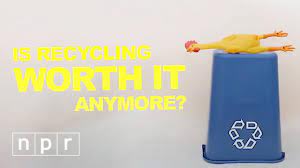 Grade Level: 6-12
Grade Level: 6-12
Duration: 15 minutes 52 seconds
Description: This video from NPR discusses the logistical issues that burden and stunt the U.S. recycling system. Students will learn how consumers, manufacturers, and governments have caused the recycling problem our country is facing today. They will learn that efforts made by manufacturers to reduce packaging and by consumers to reduce waste could help solve this problem.
Podcasts:
Why Is There A Big Patch Of Garbage In The Pacific Ocean?
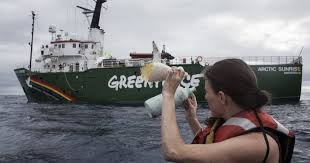 Grade Level: 3-8 (not recommended for single-session listening with younger audiences!)
Grade Level: 3-8 (not recommended for single-session listening with younger audiences!)
Duration: 24 minutes 5 seconds
Description: In this podcast from But Why: A Podcast for Curious Kids, Teen Vogue News and Politics Editor Alli Maloney describes what the Great Pacific Garbage Patch looks like and discusses the harm it causes to humans, sea creatures, and the environment. Students will learn ways they can help with the plastic problem and what governments and companies are doing to tackle the issue.
How To Compost At Home
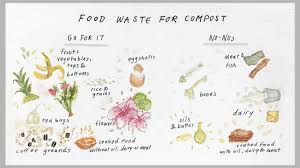 Grade Level: 4-12 (not recommended for single-session listening with younger audiences!)
Grade Level: 4-12 (not recommended for single-session listening with younger audiences!)
Duration: 17 minutes 58 seconds (story starts at 1 minute 24 seconds)
Description: This episode of Life Kit from NPR gives simple instructions to start composting. It explains different ways of composting so students can learn about the best method of composting for their living situation.
How To Reduce Food Waste
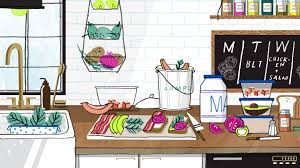 Grade Level: 9-12 (may be suitable for younger audiences with a long attention span)
Grade Level: 9-12 (may be suitable for younger audiences with a long attention span)
Duration: 20 minutes 15 seconds (story starts at 1 minute 31 seconds)
Description: This episode of Life Kit from NPR will give students tips for reducing their food waste and explains why making these changes is important for the health of the planet.
Getting to Zero Waste
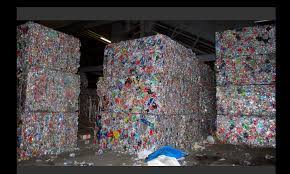 Grade Level: 6-12
Grade Level: 6-12
Duration: 5 minutes 31 seconds
Description: In this podcast from Quest Audio, students will learn about California-based recycling and composting programs that have zero waste ambitions and the struggles that these Californian cities face in trying to achieve the goal of zero waste.
Games/ Activities :
A Tale of Two Soup Cans Digital Game | Martha Speaks
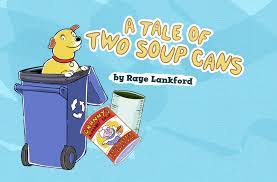 Grade Level: K-3 (younger audiences may need assistance with reading)
Grade Level: K-3 (younger audiences may need assistance with reading)
Duration: Varies
Description: This game/interactive story from PBS KIDS features characters from the program Martha Speaks. Students will first read/listen to an interactive story where they will learn about what happens to a soup can that is thrown out and alternatively about a can that is reused or recycled. Students will learn vocabulary having to do with reusing and recycling materials and can play a quiz game where they will review the vocabulary they learned.
Waste Not, Want Not Digital Game | Martha Speaks
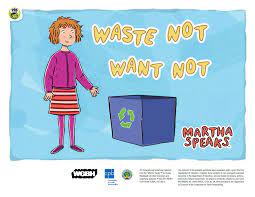 Grade Level: K-3 (younger audiences may need assistance with reading)
Grade Level: K-3 (younger audiences may need assistance with reading)
Duration: Varies
Description: This game/interactive story from PBS KIDS features characters from the program Martha Speaks. Students will first read/listen to an interactive story and will learn vocabulary having to do with composting, recycling, waste, and material use. Students can then play a quiz game where they will review the vocabulary they learned.
Litter Critters- Learn to Sort and Recycle
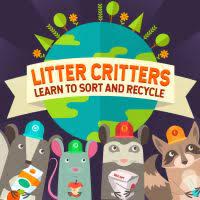 Grade Level: 1-4 (younger audiences may need assistance with reading)
Grade Level: 1-4 (younger audiences may need assistance with reading)
Duration: Varies
Description: In this game from ABCya, students will help the “Litter Critters” separate their trash into recyclables, compost, electronic waste, and landfill waste. This game is a simple way to teach students about sorting waste and offers both easy and hard levels.
Recycle Roundup
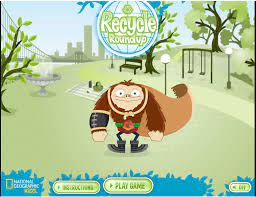 Grade Level: 1-4 (younger audiences may need assistance with reading)
Grade Level: 1-4 (younger audiences may need assistance with reading)
Duration: Varies
Description: In this game from National Geographic, students will help clean up a park by sorting trash into compost, recycling, and non-recycling. At the end of the game, students will learn how many pounds of trash they composted and recycled.
The Recycle City Challenge
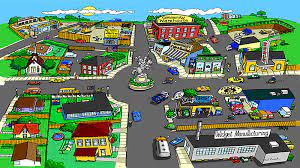 Grade Level: 3-8
Grade Level: 3-8
Duration: Varies
Description: In this virtual interactive activity from the Environmental Protection Agency (EPA), students will explore how different buildings in a virtual city work to reduce their waste. Students can then answer questions about living a green lifestyle to earn energy tokens.